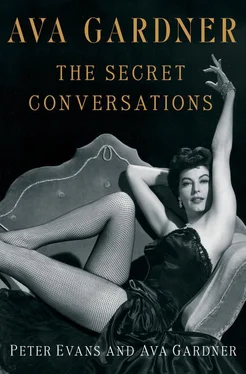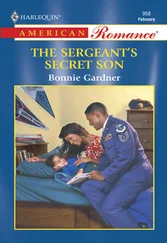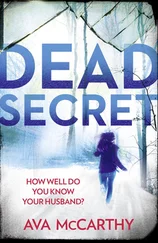Peter Evans - Ava Gardner - The Secret Conversations
Здесь есть возможность читать онлайн «Peter Evans - Ava Gardner - The Secret Conversations» весь текст электронной книги совершенно бесплатно (целиком полную версию без сокращений). В некоторых случаях можно слушать аудио, скачать через торрент в формате fb2 и присутствует краткое содержание. Город: New York, Год выпуска: 2013, ISBN: 2013, Издательство: Simon & Schuster, Жанр: Биографии и Мемуары, на английском языке. Описание произведения, (предисловие) а так же отзывы посетителей доступны на портале библиотеки ЛибКат.
- Название:Ava Gardner: The Secret Conversations
- Автор:
- Издательство:Simon & Schuster
- Жанр:
- Год:2013
- Город:New York
- ISBN:978-1-4516-2769-5
- Рейтинг книги:3 / 5. Голосов: 1
-
Избранное:Добавить в избранное
- Отзывы:
-
Ваша оценка:
Ava Gardner: The Secret Conversations: краткое содержание, описание и аннотация
Предлагаем к чтению аннотацию, описание, краткое содержание или предисловие (зависит от того, что написал сам автор книги «Ava Gardner: The Secret Conversations»). Если вы не нашли необходимую информацию о книге — напишите в комментариях, мы постараемся отыскать её.
Ava Gardner was one of Hollywood’s great stars during the 1940s and 1950s, an Oscar-nominated leading lady who co-starred with Clark Gable, Burt Lancaster, and Humphrey Bogart, among others. Her films included Show Boat, The Snows of Kilimanjaro, The Barefoot Contessa, and On the Beach. But her life off the screen was every bit as fabulous as her film roles.
Born poor in rural North Carolina, Gardner was given a Hollywood tryout thanks to a stunning photo of her displayed in a shop window. Not long after arriving in Hollywood, she caught the eye of Mickey Rooney, then America’s #1 box-office draw. Rooney was a womanizer so notorious that even his mother warned Gardner about him. They married, but the marriage lasted only a year (“my shortest husband and my biggest mistake”). Ava then married band leader and clarinetist Artie Shaw, who would eventually marry eight times, but that marriage, too, lasted only about a year (“he was a dominating son of a bitch… always putting me down”). She carried on a passionate affair with Howard Hughes but didn’t love him, she said. Her third marriage was a tempestuous one to Frank Sinatra (“We were fighting all the time. Fighting and boozing. It was madness…. But he was good in the feathers”).
Faithfully recording Ava’s reminiscences in this book, Peter Evans describes their late-night conversations when Ava, having had something to drink and unable to sleep, was at her most candid. So candid, in fact, that when she read her own words, she backed out and halted the book. Only now, years after her death, could this frank and revealing memoir be published.
“If I get into this stuff, oh, honey, have you got something coming,” Ava told Evans. Ava Gardner: The Secret Conversations is the stunning story of a legendary star’s public and private lives.
Peter Evans
Daily Express
Los Angeles Times
Vogue
Peter Sellers: The Man Behind the Mask
Nemesis
Ava Gardner
The Killers
Showboat
Mogambo
The Barefoot Contessa
The Sun Also Rises
On the Beach Review
About the Authors “I read
in a delirious gulp. It is absolutely terrific. I couldn’t put it down. Gardner comes across as a flamboyant but tragic figure who always spoke the truth no matter how painful. And the way writer Peter Evans has shaped their conversations is truly remarkable.”
(Patricia Bosworth, author of
) “Jaw-dropping anecdotes about film legends and the studio system in its heyday make this an irresistible read…. Even seasoned fans will learn fresh tidbits about ex-husbands Mickey Rooney, Artie Shaw, and Frank Sinatra, as well as her tumultuous relationships with Howard Hughes and George C. Scott…. Gardner is funny and frank, and Evans’s diligence makes the book not only one of the more revealing celebrity autobiographies published recently, but a candid glimpse into the world of a ghostwriter, star handler, and late-night confidante.”
(
) “An unvarnished account of [Gardner’s] marriages and affairs in golden-age Hollywood…. Give[s] a vivid sense of Gardner’s salty, no-BS personality…. Juicy.”
(
) “A complete delight…. [Gardner’s] quotes exude the musk of a woman supremely indifferent to the social proprieties and expectations of her era…. Hers is the heartbreaking memoir of the ultimate heartbreaker.”
(Carrie Rickey
)












